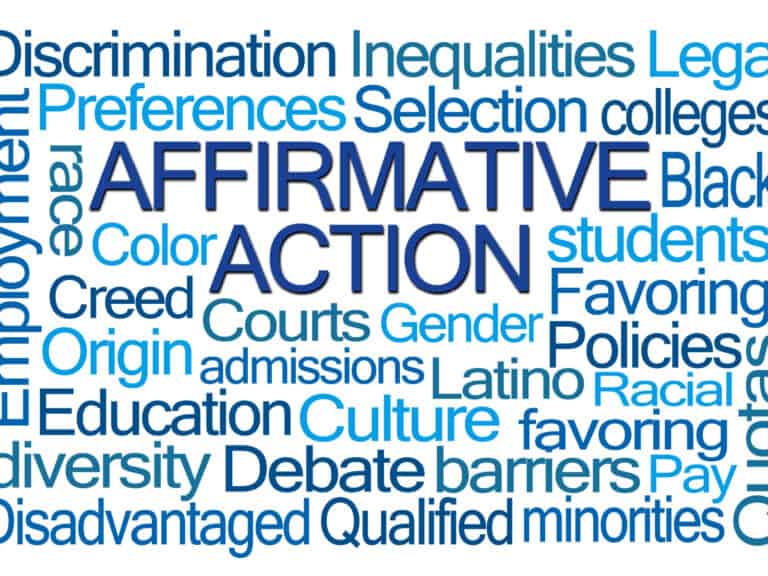How to Apply for College as a Homeschool Student
Homeschooled high schoolers can attend college after earning their homeschool diploma or something equivalent to it.
The first step to take is applying to the postsecondary institutions of their choosing much like everybody else, including traditional high school graduates. As a matter of fact, the application process for homeschoolers is the same for all applicants.
It’s a must to note, however, that college admissions officers at different schools may indicate what sort of documents they accept, which has to be submitted by a homeschooled applicant for his or her application to be considered.
Below are the steps on how homeschoolers apply for college and also a list of some homeschooler-friendly schools.
Is College Application Different for Homeschooled Applicants?
The college application process for homeschool graduates is pretty much the same as for traditional high school graduates. The main difference lies in the documentation homeschooled applicants have to provide.
For instance, rather than from the counselor or registrar, the high school transcript of a homeschooler comes from a parent.
Instead of the process itself, making college application a somewhat different experience for homeschooled college applicants are the various requirements they need to submit to the admissions office.
Generally speaking, they are the same documents as everybody else’s but in other forms or from other sources.
From the transcript, diploma to the recommendation letters, application requirements homeschool graduates need to submit can be quite different from those of traditional high school graduates.
It’s therefore important for the applicant to carefully check what is accepted by the college of his or her choosing and what is not for a hassle-free application.
Steps College-Bound Homeschoolers Should Take
Research homeschooler-friendly postsecondary institutions
Some colleges and universities are simply friendlier to homeschool graduates than the rest as far as the admissions process is concerned because they leave a reasonable amount of wiggle room when it comes to requirements.
A list of some of the most homeschooler-friendly schools will be given shortly.
It doesn’t mean, however, that homeschooled kids should limit their college selections to those with more lax admissions for non-traditional applicants like homeschoolers.
While they may also consider applying to institutions that mostly admit traditional high school graduates, it’s a must that they work harder to meet each and every requirement.
Register with the right application platform
Some colleges accept both the Common App and the Coalition App, while others accept only one of them. But then there are also institutions that have their own application platform with which applicants must register.
In most instances, homeschooled applicants apply using the same platform as everybody else.
Creating an account with the right platform, needless to say, is a must for a homeschool graduate’s application to be accepted. It’s also important to correctly indicate which type of student the applicant is to avoid unnecessary problems.
For instance, a homeschooler applicant must select “homeschooled” in the Education Section of the Common App.
Submit required documents and tests
Similar to applicants with a traditional high school diploma, homeschooled applicants must also submit documents commonly required by colleges and universities from those who are interested in attending.
In many states, homeschooled high school students are required to take national standardized tests such as the SAT or ACT on a regular basis.
Many postsecondary institutions, whether test-optional or test-required, usually ask homeschooled applicants to submit SAT or ACT scores, which can help admissions officers to further determine college readiness.
Recommendation letters are common requirements, too, although the vast majority of colleges do not accept those that are written by the parents — it could be from an employer, coach, counselor, extracurricular adviser or religious leader.
Some colleges may welcome a recommendation from a parent but must be accompanied by others written by other people.
It’s not uncommon for homeschooled applicants to be asked to submit application essay/s, too.
Homeschooled applicants should take every opportunity to provide context in their application, such as discussing extracurriculars they participated in for admissions officers to see that they are just as well-rounded students as others.
Unlike the academic transcripts of applicants who attended traditional high schools, those of homeschooled kids are usually the responsibility of their parents, with the exception of students enrolled in the likes of umbrella institutions and correspondence schools.
It’s important for homeschooled applicants to check the requirements with the colleges of their choosing.
Parents are very much likely to be required to provide additional documents, too, such as a detailed syllabus for each high school class as well as an explanation of the grade equivalency.
Fill out the FAFSA form
Homeschooled students who are eligible to apply to accredited colleges and universities are also usually eligible to apply for federal, state or school aid by completing and submitting the FAFSA form.
When filling out the FAFSA, though, indicating “homeschooled” is vital in some steps.
For instance, when asked the name of the applicant’s high school, typing “homeschool” solves the problem.
This is true even if a list of high schools pops up at the bottom after filling in the city and state — a homeschooler simply has to click the “Next” arrow.
Indicating “homeschooled” is also the step to take when asked whether the student has a high school diploma or GED.
Top Homeschooler-Friendly Colleges
Azusa Pacific University
What makes it easy for homeschool graduates to apply to APU is that those who do not have an official high school transcript may simply submit one created by their instructor.
Also, they will not be required to take the GED Test or the California High School Proficiency Examination (CHSPE), although the review process will strongly focus on SAT or ACT scores.
Bennington College
Ranked #1 in Most Diverse Colleges in Vermont and #2 in Best College Campuses in Vermont by Niche, Bennington is a private liberal arts college with a very low student-to-faculty ratio of 10:1, which can work for homeschooled attendees.
It offers 100 academic majors, some of the most popular of which include literature, psychology and visual and performing arts.
Dallas Baptist University
A private Christian institution ranked #17 in Best College Campuses in Texas and #15 in Most Conservative Colleges in America by Niche, DBU welcomes more than 50 homeschooled students into its freshmen class yearly.
As of this writing, its undergraduate population is 3,093.
It has a rolling admissions policy and a very high acceptance rate of 94%.
Grand Canyon University
In 2022, GCU was included in the Top 20 Homeschool-Friendly Colleges list by an e-zine written by homeschooled teens themselves, Homeschooling Teen Magazine.
One of the things that make the private for-profit Christian institution friendly to homeschoolers is that it makes dual-enrollment online classes accessible to them.
Ivy Tech Community College
Homeschool graduates who are looking to work on associate degrees in science and technology as well as health professions may consider adding Ivy Tech to their college list.
It has a Guaranteed Admissions program with 4-year colleges and universities in Indiana that amount to 22 institutions, allowing graduates to enjoy automatic acceptance to them.
Liberty University
According to Liberty itself, it welcomes homeschoolers from across the globe into its student body every year.
While its admissions process for homeschooled applicants is the same for everyone else, the school, however, requires transcripts to follow university standards.
Undergraduate admits can choose from over 200 majors across 12 different schools and departments.
Thomas Edison State University
Established to serve adult learners, Thomas Edison accepts applicants with a secondary home school diploma, although they will have to be at least 20 years of age — or 18 years or older if an active member of the US military.
The public institution offers associate and bachelor’s degree programs across more than 100 areas of discipline.
University of Alaska Fairbanks
Homeschool graduates will not feel alienated when applying to UAD as the admissions requirements are the same for other applicants, although a provision to allow parental transcripts to be submitted is created for them.
Known for being a leader in climate change and Arctic research, the public institution has over 60 majors for undergraduate students to choose from.
William Carey University
Ranked #2 in Colleges with the Best Academics in Mississippi and #26 in Best Christian Colleges in America by Niche, William Carey has a rolling admissions policy — the lack of a hard deadline can help make the application process easier for homeschool graduates.
Having a 55% acceptance rate, some of its most popular majors include nursing and elementary education.
Apply to College as a Home School Student: Conclusion
When applying to colleges, homeschooled individuals pretty much have to take the steps traditional student applicants need to take, from filling out the Common App or the Coalition App, completing the FAFSA to submitting other requirements.
Some of the documents they need to submit, however, can be different from the rest, which is perfectly fine for colleges.
Can homeschooled students get into Harvard University?
According to Harvard itself, homeschooled applicants are treated the same as all other students who are interested in attending the Ivy League. Similarly, as always, each application is reviewed carefully by admissions officers. There is no special process homeschooled graduates need to go through when applying.
Does New York University accept homeschooled applicants?
Like many elite institutions, NYU welcomes homeschooled applicants. However, they must provide evidence of a homeschool diploma or a completion certificate that is considered the equivalent of a high school diploma in their respective states. They may also sit for the GED test and submit results.
Disclaimer: The views and opinions expressed in this article are those of the authors and do not necessarily represent those of the College Reality Check.






